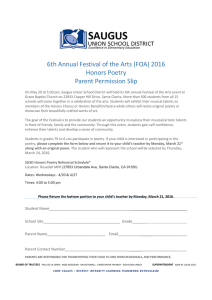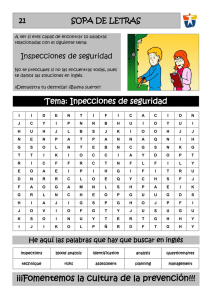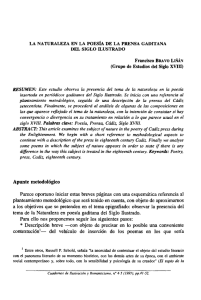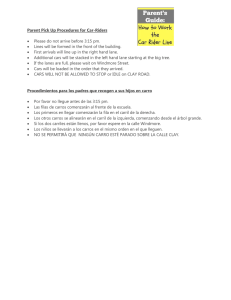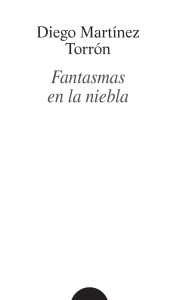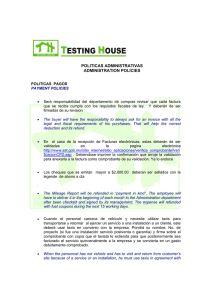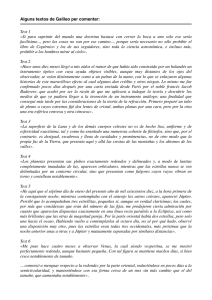20 Century Spanish Literature ***
Anuncio
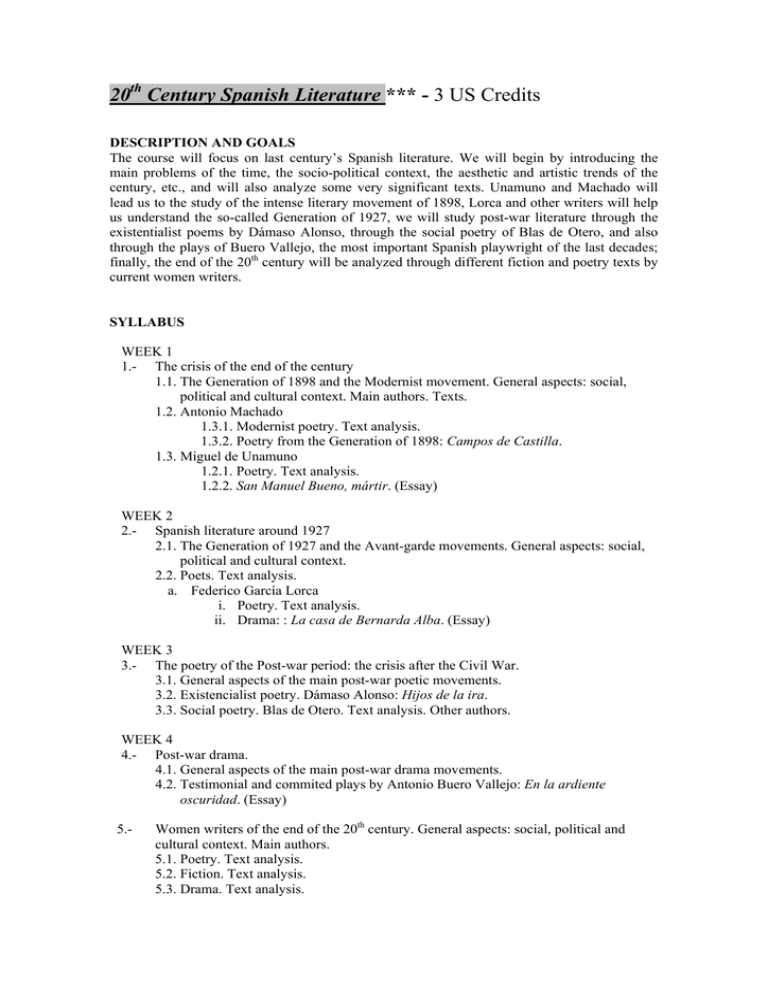
20th Century Spanish Literature *** - 3 US Credits DESCRIPTION AND GOALS The course will focus on last century’s Spanish literature. We will begin by introducing the main problems of the time, the socio-political context, the aesthetic and artistic trends of the century, etc., and will also analyze some very significant texts. Unamuno and Machado will lead us to the study of the intense literary movement of 1898, Lorca and other writers will help us understand the so-called Generation of 1927, we will study post-war literature through the existentialist poems by Dámaso Alonso, through the social poetry of Blas de Otero, and also through the plays of Buero Vallejo, the most important Spanish playwright of the last decades; finally, the end of the 20th century will be analyzed through different fiction and poetry texts by current women writers. SYLLABUS WEEK 1 1.- The crisis of the end of the century 1.1. The Generation of 1898 and the Modernist movement. General aspects: social, political and cultural context. Main authors. Texts. 1.2. Antonio Machado 1.3.1. Modernist poetry. Text analysis. 1.3.2. Poetry from the Generation of 1898: Campos de Castilla. 1.3. Miguel de Unamuno 1.2.1. Poetry. Text analysis. 1.2.2. San Manuel Bueno, mártir. (Essay) WEEK 2 2.- Spanish literature around 1927 2.1. The Generation of 1927 and the Avant-garde movements. General aspects: social, political and cultural context. 2.2. Poets. Text analysis. a. Federico García Lorca i. Poetry. Text analysis. ii. Drama: : La casa de Bernarda Alba. (Essay) WEEK 3 3.- The poetry of the Post-war period: the crisis after the Civil War. 3.1. General aspects of the main post-war poetic movements. 3.2. Existencialist poetry. Dámaso Alonso: Hijos de la ira. 3.3. Social poetry. Blas de Otero. Text analysis. Other authors. WEEK 4 4.- Post-war drama. 4.1. General aspects of the main post-war drama movements. 4.2. Testimonial and commited plays by Antonio Buero Vallejo: En la ardiente oscuridad. (Essay) 5.- Women writers of the end of the 20th century. General aspects: social, political and cultural context. Main authors. 5.1. Poetry. Text analysis. 5.2. Fiction. Text analysis. 5.3. Drama. Text analysis. BIBLIOGRAPHY - ALONSO, Dámaso, Hijos de la ira, Madrid: Espasa-Calpe (Col. Austral), 2001. - ASCUNCE, J.A. (ed.): El amor de Blas de Otero. San Sebastián: Univ. DeustoMundaiz, 1986. - BLANCO AGUÍNAGA, Carlos: El Unamuno contemplativo, Ed. Laia, 1975. - BUERO VALLEJO, Antonio, En la ardiente oscuridad, Mariano de Paco (ed.), Madrid: Espasa-Calpe (Col. Austral), 2006. - CEREZO GALÁN, Pedro: Palabra en el tiempo. Palabra y filosofía en Antonio Machado., Madrid: Gredos, 1975. - DOMENECH, Ricardo (ed.): “La casa de Bernarda Alba” y el teatro de García Lorca, Madrid: Cátedra-Teatro Español, 1985. - ENCINAR, Ángeles y PERCIVAL, Anthony (eds.), Cuento español contemporáneo, Madrid: Cátedra, 1993. - FEAL DEIBE, Carlos: Lorca: tragedia y mito, Warminster: Aris & Phillips, 1989. - FLYS, M.J.: La poesía existencial de Dámaso Alonso. Madrid: Ed. Gredos, 1968. - GARCÍA DE LA CONCHA, Víctor (ed.): Poetas del 27. La generación y su entorno. Antología comentada, Madrid: Espasa-Calpe (Col. Austral), 1998. - GARCÍA LORCA, Federico, La casa de Bernarda Alba, Mª Francisca Vilches de Frutos (ed.), Madrid: Cátedra, 2007. - GINFERRER, Pere (ed.): Antología de la poesía modernista, Barcelona: Península, 1981. - IGLESIAS FEIJOO, Luis: La trayectoria dramática de Antonio Buero Vallejo, Santiago de Compostela, 1982. - LANGA PIZARRO, María del Mar, Del franquismo a la posmodernidad: la novela española (1975-1999), Alicante: Publicaciones de la Universidad de Alicante, 2000. - MACHADO, Antonio: Poesías completas, Pról. de Manuel Alvar, Madrid: EspasaCalpe, 1998. - MANTERO, Manuel: Poetas españoles de posguerra, Madrid: Espasa-Calpe, 1986. - OTERO, Blas de: Verso y prosa, Madrid: Cátedra, 1989. - PALOMO, Mª del Pilar: La poesía en el siglo XX (desde 1939), Madrid: Taurus, 1988. - RUIZ RAMÓN, Francisco: Historia del teatro español. Siglo XX, Madrid: Ed. Cátedra, 1992. - SHAW, Donald: La Generación del 98, Madrid: Cátedra, 1989. - UNAMUNO, Miguel de: San Manuel Bueno, mártir. Mario Valdés (ed.), Madrid: Cátedra, 1984. ASSESSMENT The final grade will be calculated according to the following grade breakdown: - Participation: 10% Class assignments: 10% Written assignments: 40% Final exam: 40% ***The student must be registered for Spanish III or have an equivalent level of Spanish. Note: Class attendance is essential in all courses. Therefore, it will be checked daily. Missing classes will negatively affect the student’s final grade.
